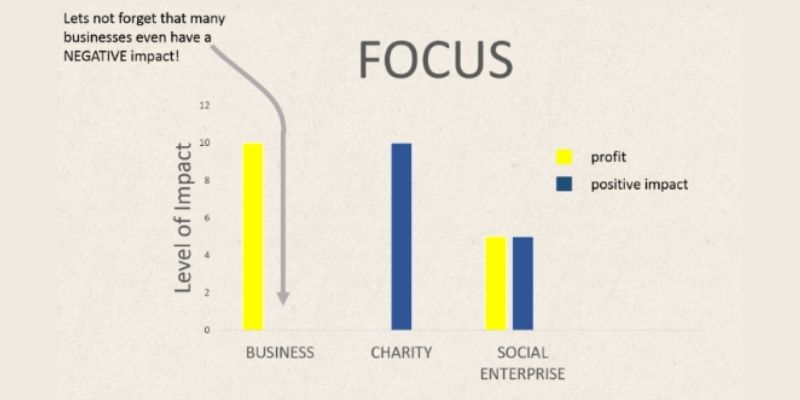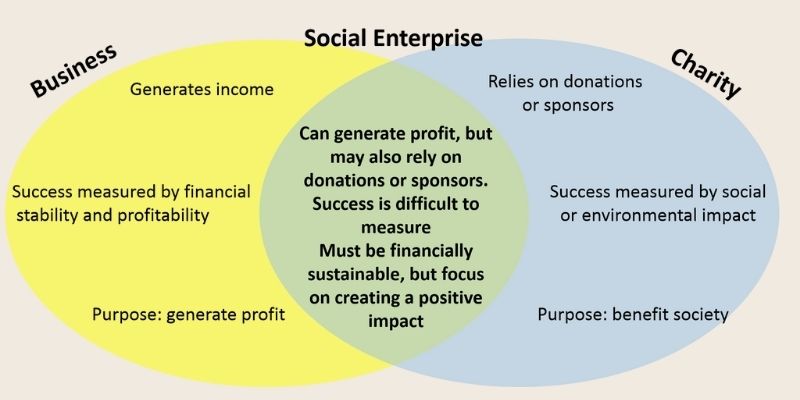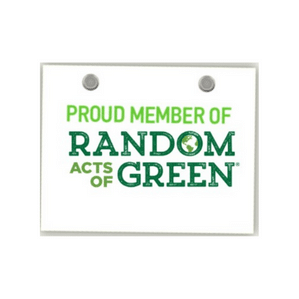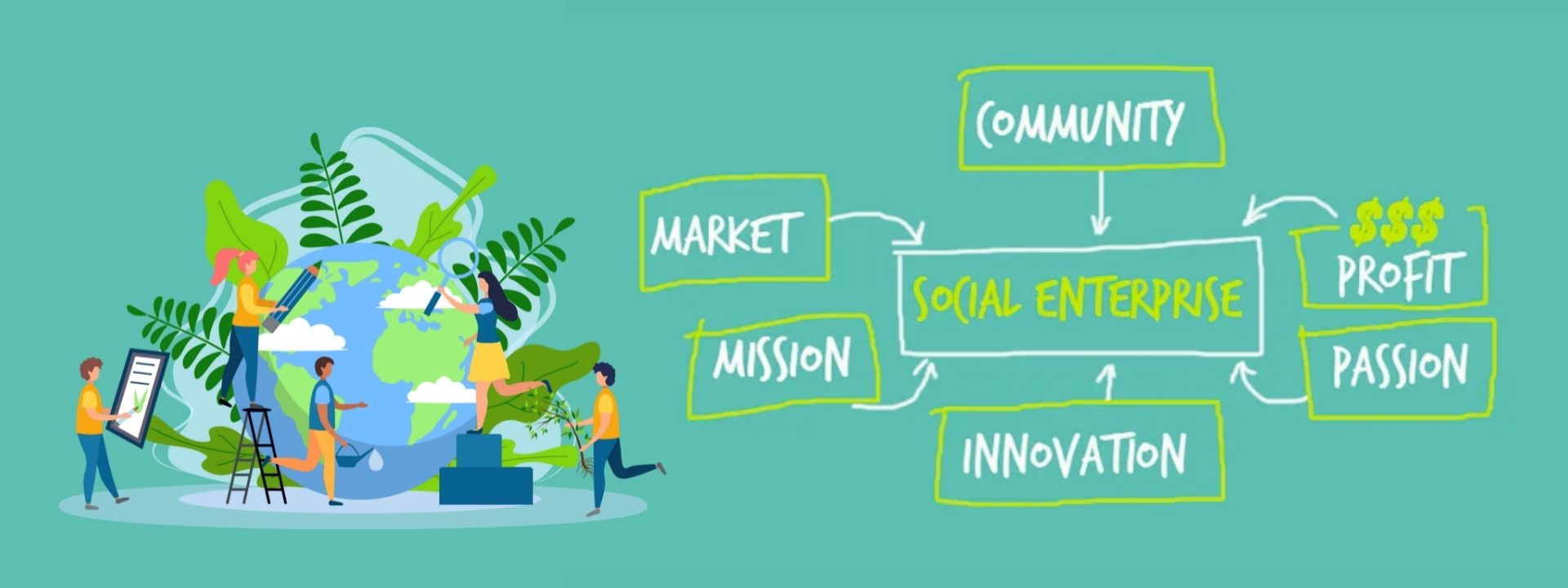Social Entrepreneurship
Random Acts of Green identifies as a social enterprise. However, because this is a new concept to many businesses and people, we thought we would break down the word and help define what that means to us.
Firstly, in Canada, there is no formal legal structure for this business. You have to either choose a non-profit, charity or a for-profit model. But, the social enterprise is an emerging trend in the business world. It has grown in popularity because of its viability as a business model. It presents a unique opportunity for several reasons we will explain below.
A social enterprise operates like a business, produces goods and services for the market, but manages its operations and redirects its surpluses in pursuit of social and environmental goals (from Western Economic Diversification). A great way to think of it is a revenue-generating business that exists where both non-profit and for-profit models intersect.
One defining key characteristic is that the company’s mission is at the centre of the business – with income generation playing an important supporting role. Social purpose organizations have environmental and social causes embedded intricately in their DNA. They are businesses with social objectives.

This graphic from the University of New Brunswick Zambezi strongly showcases the differences between a business, charity, and a social enterprise.
As illustrated, the businesses are focused on PROFIT in yellow, while charities are focused on POSITIVE IMPACT in blue.
In contrast, Social Enterprises are equalizers – they care about both PROFIT and POSITIVE impact, in balance. The profits are used to sustain their positive impact.

What is a social enterprise?
Below, you can find key defining characteristics (Investopedia, 2022):
- Maximizing profits is not the primary goal of a social enterprise, as with a traditional business
- Unlike a charity, social enterprises pursue endeavors that generate revenues to fund their social causes.
- Funding for a social enterprise is obtained by selling goods and services

This graphic from the University of New Brunswick Zambezi illustrates the difference as well of business and charity. It showcases that social purpose organizations are models that exist where these two businesses intersect.
Is My Organization a Social Enterprise?
Here are some key questions to answer if this model fits your organization (Centre for Social Enterprise, n.d.)
Here is a test for non-profit or charity:
What are you selling? It could be that you are operating with an entrepreneurial mindset within your organization, but if you are not selling a good or service in the marketplace, you aren’t running a business: you may be running a social program, but not a social enterprise.
Here is a test for a traditional business::
To what degree do social/environmental goals steer your ship? If profit is paramount (and particularly if individual owners or shareholders are personally benefitting), you may be engaging in socially conscious purchasing or corporate social responsibility, rather than operating a social enterprise.
Another secondary goal of social purpose organizations, aside from generating revenues to pursue their social mission, is to provide training and/or employment of people who are excluded from the mainstream economy. (Centre for Social Enterprise, n.d.)
A Current Social Enterprise Example
Random Acts of Green is a proud social enterprise.
This means we use business as a catalyst to achieve a mission to encourage small changes that have a ripple effect.
We understand this concept is a new one in the business world but aim to be pioneers and be living proof that this model is viable.
Our vision is to build a glocal (global + local) climate action community where everyone is empowered to take action together and promote environmental sustainability.
Our mission is to prove that we can all make changes that add up to make a big collective impact. With our out-of-the-box toolbox of actions you can take, our social media networks, memberships, website, app, and blog, we work to build a future where our shared home is protected.

Luckily, there are actions we can all take to combat these issues.
By joining the Random Acts of Green sustainability alliance, you can take part in collective climate action.
Because together -we are stronger.
More Blog Posts:

Sustainable LGBTQ Owned Brands and Organizations To Support For Pride Month (and beyond!)
Sustainable LGBTQ owned Businesses to support! Learn about the connection between this community & their inclusion in the environmental movement.

The Guide to Veganuary!
Whether you are going full vegan or starting to eat less meat, our guide to veganuary will help you go plant-based in 2023.




